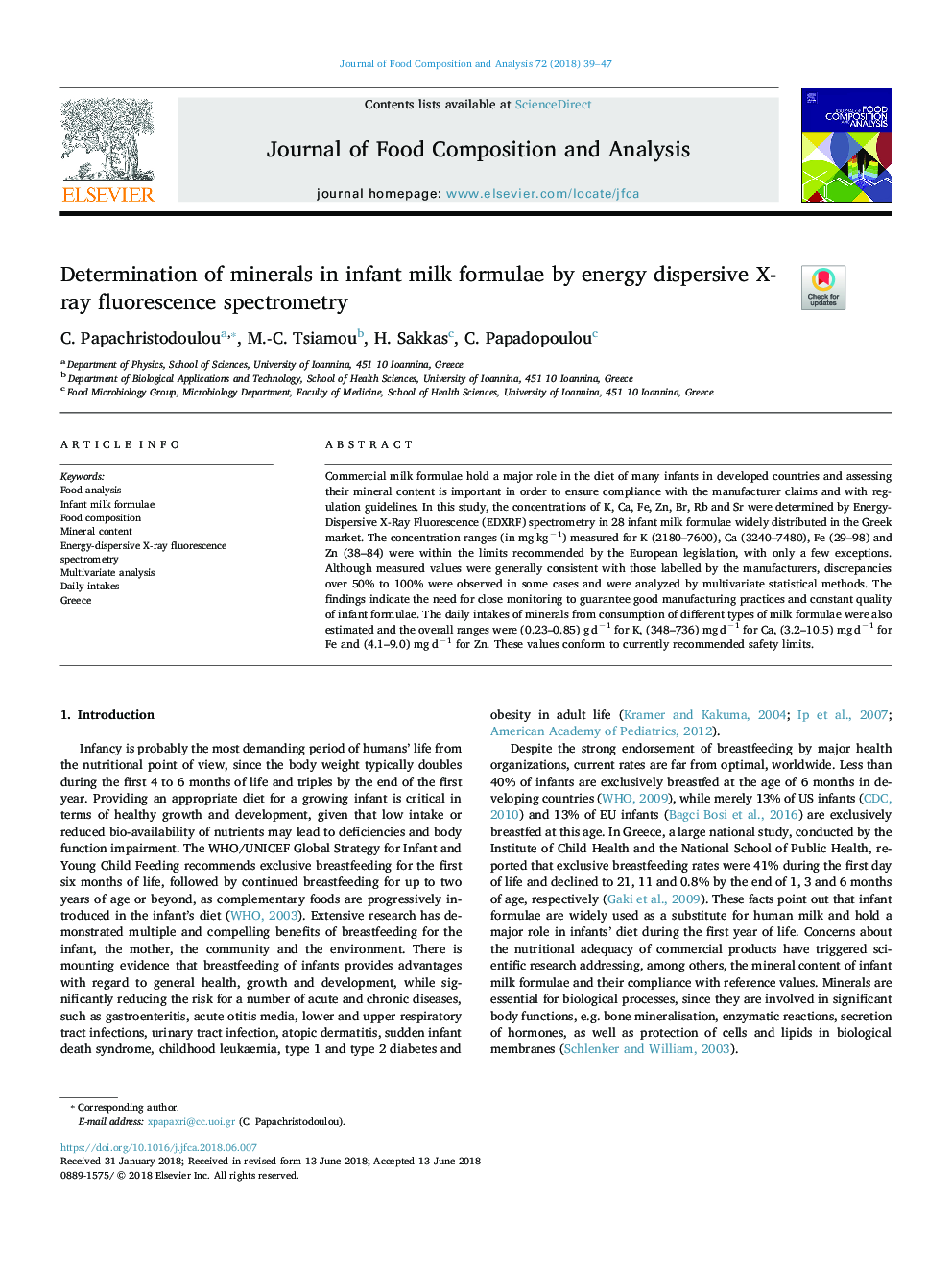| Article ID | Journal | Published Year | Pages | File Type |
|---|---|---|---|---|
| 7619523 | Journal of Food Composition and Analysis | 2018 | 9 Pages |
Abstract
Commercial milk formulae hold a major role in the diet of many infants in developed countries and assessing their mineral content is important in order to ensure compliance with the manufacturer claims and with regulation guidelines. In this study, the concentrations of K, Ca, Fe, Zn, Br, Rb and Sr were determined by Energy-Dispersive X-Ray Fluorescence (EDXRF) spectrometry in 28 infant milk formulae widely distributed in the Greek market. The concentration ranges (in mgâ¯kgâ1) measured for K (2180-7600), Ca (3240-7480), Fe (29-98) and Zn (38-84) were within the limits recommended by the European legislation, with only a few exceptions. Although measured values were generally consistent with those labelled by the manufacturers, discrepancies over 50% to 100% were observed in some cases and were analyzed by multivariate statistical methods. The findings indicate the need for close monitoring to guarantee good manufacturing practices and constant quality of infant formulae. The daily intakes of minerals from consumption of different types of milk formulae were also estimated and the overall ranges were (0.23-0.85) gâ¯dâ1 for K, (348-736) mgâ¯dâ1 for Ca, (3.2-10.5) mgâ¯dâ1 for Fe and (4.1-9.0) mgâ¯dâ1 for Zn. These values conform to currently recommended safety limits.
Related Topics
Physical Sciences and Engineering
Chemistry
Analytical Chemistry
Authors
C. Papachristodoulou, M.-C. Tsiamou, H. Sakkas, C. Papadopoulou,
